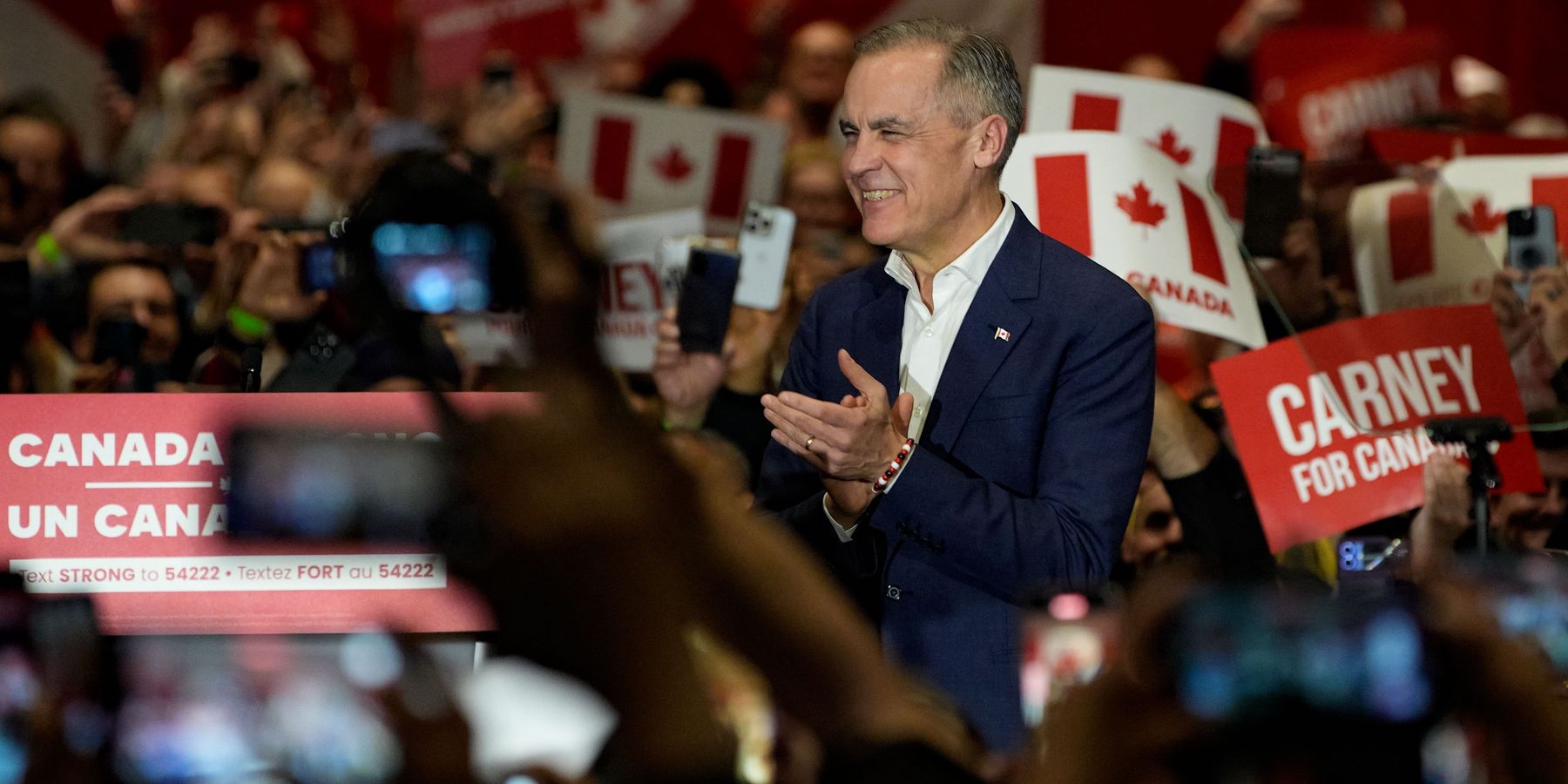Monday’s federal election in Canada has returned the Liberal Party, now led by former central bank governor Mark Carney after Justin Trudeau’s departure earlier this year, to power for a fourth consecutive term.
The result represents a stunning — and, by historical standards, shockingly rapid — turn of events. As recently as January, opinion polls were consistently showing a massive 25-point Conservative Party lead, driven by Trudeau’s deep and abiding unpopularity after more than nine years in office.
Carney replacing Trudeau as prime minister undoubtedly helped the Liberals to turn the page, although some may argue in style more than in substance. But this dramatic comeback would not have been possible without Donald Trump’s repeated threats to turn Canada into America’s 51st state. The Tories’ defeat owes itself in no small part to their inability to pivot quickly enough away from their longstanding “everything is broken” anti-Trudeau message and embrace the prevailing anti-Trump zeitgeist.
Canadians have long stopped treating Trump’s threats as a joke — and the president in a recent interview for TIME magazine admitted he was “not trolling.” While it remains unclear what tangible measures the administration will take to advance the president’s annexationist vision, Trump’s inability to put this obsessive rhetoric aside will no doubt complicate any post-election trade negotiations between Canada and the United States.
The results of the election present a further complicating factor. The Liberals will only form a minority government — Canada’s sixth in the past eight elections — thanks to a strong performance by the Conservatives in the country’s most populous province of Ontario. Despite the loss, Tory Leader Pierre Poilievre led his party to its highest share of the popular vote since 1988, rebuilding his party’s image with younger voters thanks to a message focused on housing and affordability.
A polarized electorate has made this the first federal election since 1958 in which the two leading parties combined for more than 80 percent of the vote, facilitated by the devastating collapse in support for the left-wing New Democratic Party (NDP). This is, in fact, the first federal election since 2000 in which any party has succeeded in passing the 40 percent threshold — something that both the Liberals and Conservatives achieved in Monday’s vote.
Yet despite their high popular vote share, the Liberals were only able to capture 169 seats (pending any recounts), three short of the threshold necessary for a majority in Parliament. The difference between a minority and majority government ultimately rested on just 611 votes in three ridings. Given this close margin, the election of the speaker of the House, possible floor crossings to the Liberals, and future by-elections in the event of a resignation will all take on added significance. But in the meantime, Carney’s government will have to rely on outside support to pass legislation.
Given Trump’s threats, the need for Canada to find more reliable export markets has gained renewed impetus. But moving forward with new east-west infrastructure to reduce Canada’s dependence on the United States may prove complicated as long as the Liberals rely on NDP or Bloc Québécois votes in the House of Commons.
Canadian politics have grown increasingly partisan over the past two decades. Yet with minority governments increasingly the norm, the ability of the Liberals and Tories to put their differences aside where the national interest is concerned will be a non-negligible factor shaping the extent of Canada’s leverage in its relationship with the U.S., both during the Trump presidency and beyond.
















